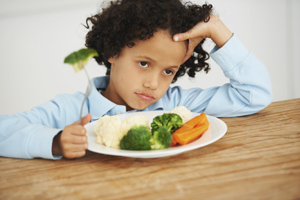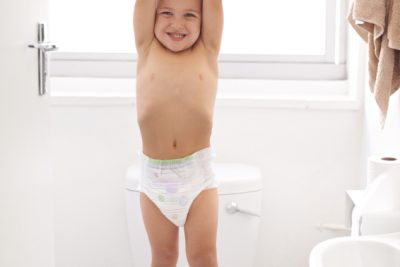A day in the pediatric ER never passes without a story like this: A child develops severe abdominal pain, the crying child is rushed to the ER, and I examine the child and pronounce that the patient is full of poop. Yes, constipated. The baffled parents and embarrassed child seem unconvinced of my diagnosis. How could poop cause such severe pain? Am I sure this isn’t appendicitis?
Constipation affects up to 30% of the pediatric population and, in my experience as a pediatrician in a community ER, is the most common reason why children come to the ER with abdominal pain. The severe pain of constipation should not be underestimated.
I show the smirking family the patient’s x-ray, pointing out the line of poop balls that encircles the abdomen. Someone usually pokes fun at the child, and I hope the child has the prowess to make light of the situation.
Then comes the real kicker—my recommendation for an enema. I describe in detail to the child what an enema entails, how a nurse will squirt salt water up his anus and how he will have to try to hold it in for a few minutes to dissolve the poop. Some kids smirk, some turn red and look down, some anxiously eye their parents. I try to emphasize that this is an optional treatment, but that it is the best option to bring rapid relief from their severe abdominal pain. I have to remind them that this pain is why they came to the ER in the first place. This is not what the patient or parents envisioned when they rushed to the ER thinking about appendicitis.
And finally, before the patient goes home to work on pooping, I am again the bearer of more awkward news. His poop problem is probably not going to go away. Most pediatric constipation is chronic. I emphasize the need to go on a long-term laxative, probably for at least a few weeks. I discuss the importance of following up with their primary care physician. Yes, they have to go set up an appointment and pay a co-pay to have more uncomfortable conversations with their own doctor about this pooping problem. Why? Because it is important to try to identify the underlying cause of constipation so that it can be addressed.
Here are three common reasons why kids get constipated:
1) Not pooping at school: Not surprisingly, kids don’t want to poop without privacy and without enough time. SomeSt. Louis area schools have actually taken the doors off the stalls to make it easier to monitor bathrooms. Many middle and high schools give a very limited amount of time between classes to use the rest room. Younger kids are often given a specific, limited amount of time in the rest room, often while other children wait and listen to everyone’s bodily functions on the toilet. So, kids try to wait until they get home to poop— a sure recipe for constipation.
The solution: For older kids, get a doctor’s note that permits your child to use the rest room whenever necessary. If there are no doors on the stalls, get permission to use the rest room in the nurse’s office.
2) Low fiber diet: How many kids do you know that gobble down raw veggies and high fiber foods everyday? Do your kids actually eat the veggies served in school lunches, or do they skip right to the dessert?
The solution: If you can’t get your kids to eat foods naturally high in fiber, consider a fiber supplement, high fiber sandwich bread, or high fiber breakfast cereal.
3) Not enough exercise: Who wants to exercise with a belly full of poop? Kids with chronic constipation often don’t want to exercise, causing them to fall into a viscous cycle of constipation and sedentary life.
The solution: Exercise is a great way to keep your child pooping regularly. High impact exercises such as sports that include running or dancing are best. Try to work in small frequent family exercises, such as ten minutes of dance or an after dinner walk. Small, frequent exercise habits can be easier for busy families than enrolling kids in expensive sports about which they are not passionate.
For more information about constipation and treatment, please call 314.454.KIDS or 800-678.KIDS, or click here to download our brochure.





My child belly hurting she crying won’t move in bad pain cant poop
my son was giving enema in the hospital and sent home. my question is how long is takes for him to use the bathroom and he still got cramps